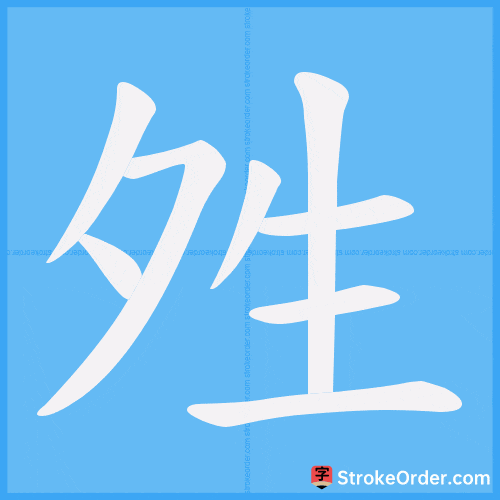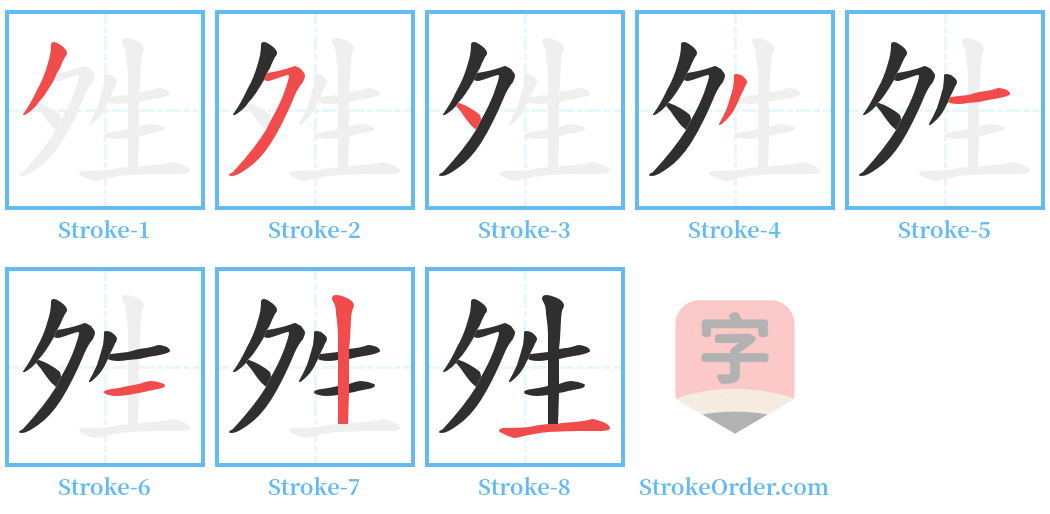夝 Stroke Order
Animated Stroke Order of 夝

Stroke Order Diagrams for 夝

Information of 夝
Pinyin
qíng
Radical
夕
Strokes
8 strokes
Usage
★★
Definition
夝:
1. In ancient times, it meant "clear," referring to a sky without clouds or with very few clouds.
形 (Form): (Phonetic compound. Consists of the components sun and a phonetic element representing blue. The ancient meaning of "blue" also has semantic implications. In "Shuowen Jiezi," it is recorded as "夝." The meaning is: at night (evening) after rain stops, stars appear.
Original meaning: when it stops raining and the sky is clear, the weather is sunny. The same meaning applies to 夝, which denotes that after rain at night, stars can be seen. With the evening, the voice begins. Night is referred to as evening. — "Shuowen Jiezi"
Examples:
- 晴岚 (qíng lán): the mist in the mountains on sunny days
- 放晴 (fàng qíng): to become clear after cloudy and rainy weather
- 晴川 (qíng chuān): the river surface under a clear sky
- 晴日 (qíng rì): sunny day
- 晴昊 (qíng hào): clear sky
- 晴雪 (qíng xuě): snow after the weather clears up
- 晴虚 (qíng xū): clear sky; "虚" means vast space